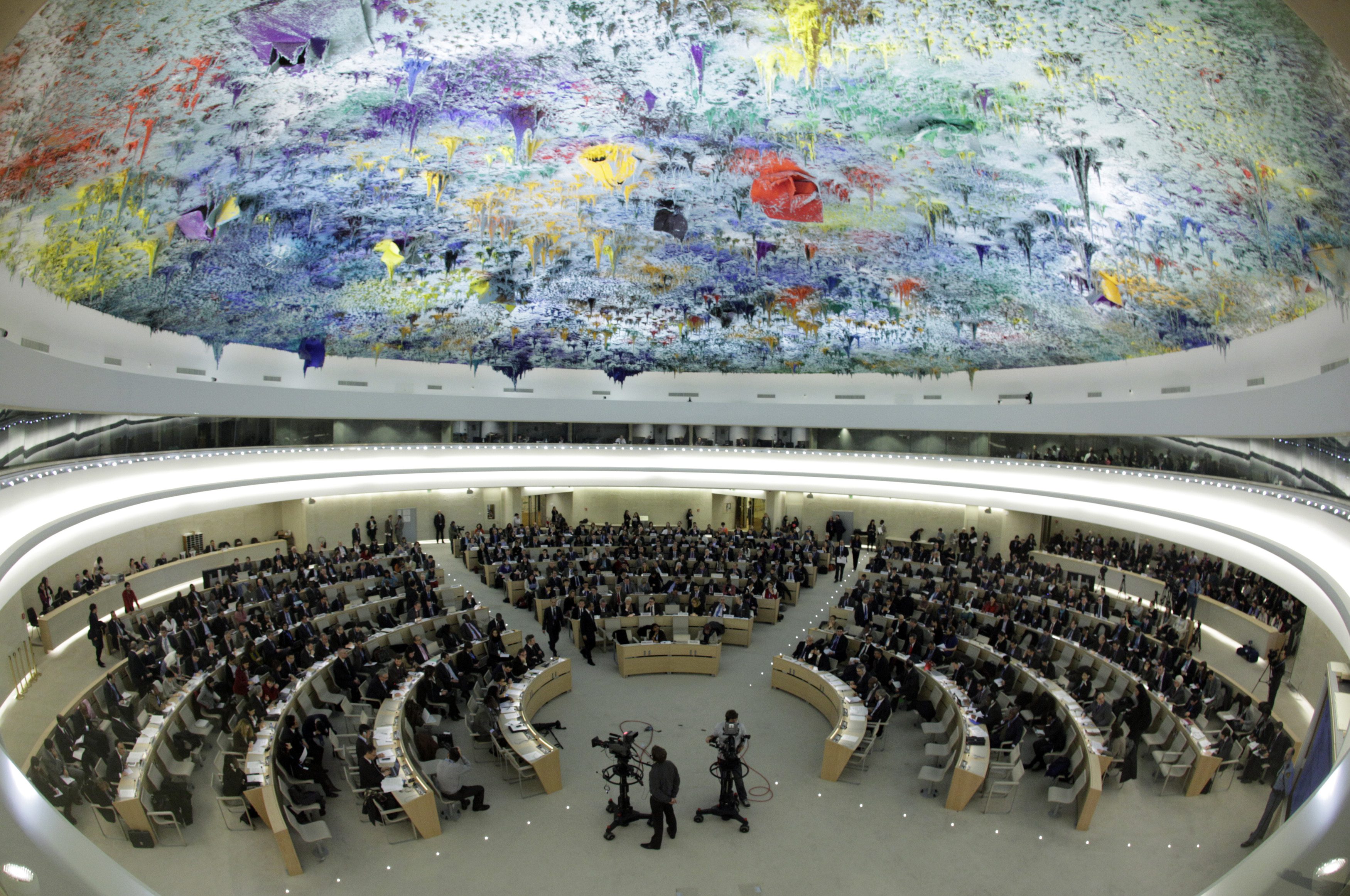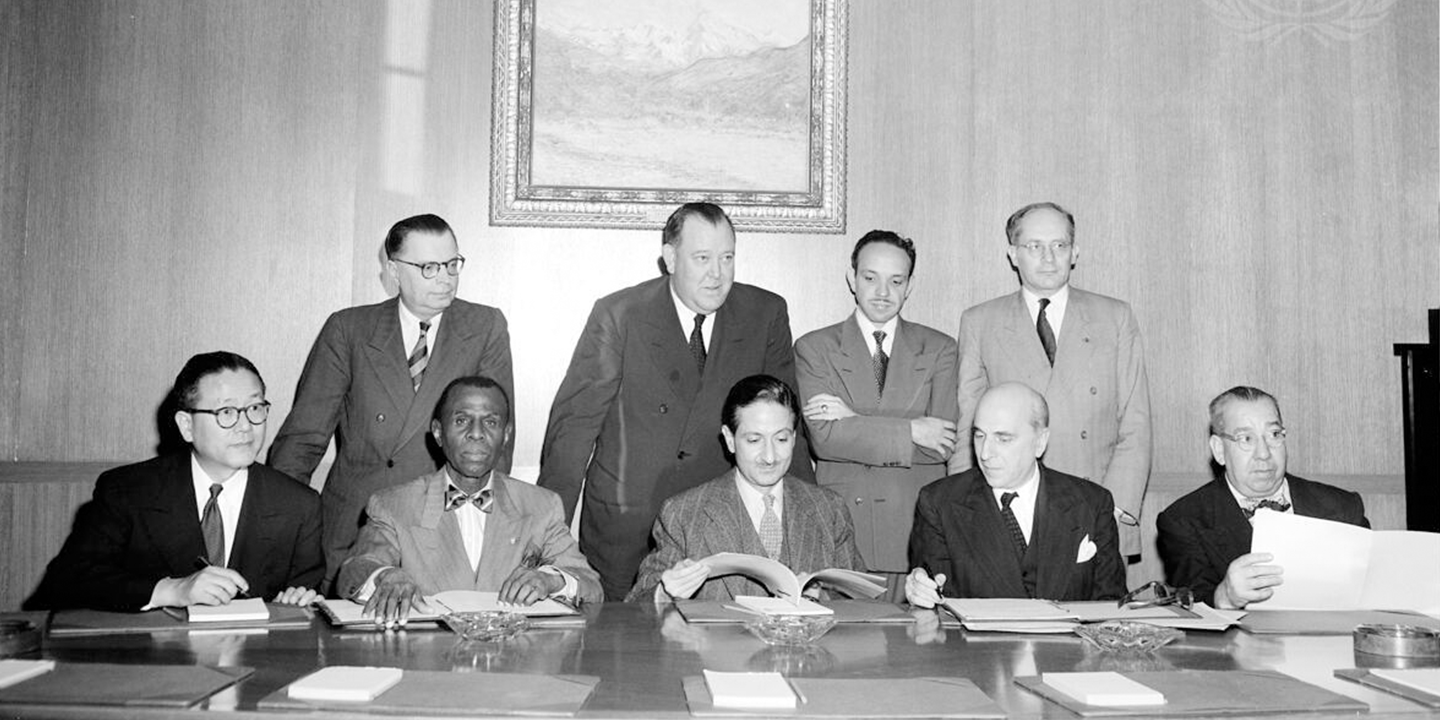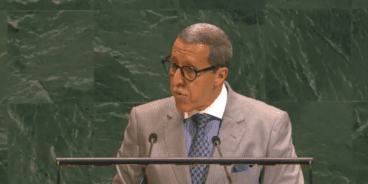

Statement by members of the Global Network of R2P Focal Points regarding the commemoration of the 75th anniversary of the Genocide Convention
The statement below is issued on behalf of members of the Global Network of R2P Focal Points. An R2P Focal Point is a senior official within a government who facilitates national mechanisms for atrocity prevention and promotes international cooperation by participating in the Global Network.
We, the members of the Global Network of R2P Focal Points, are writing in commemoration of the December 2023 observance of the 75th anniversary of the Convention on the Prevention and Punishment of the Crime of Genocide, which represents a significant milestone in the international community’s commitment to preventing and responding to one of the most heinous crimes. The Genocide Convention was the first human rights treaty of the United Nations system, enshrining the responsibility of states to prevent and punish genocide, a crime that shocks the conscience of the world. On this significant anniversary, we urge all states that have not yet done so to sign and ratify the Genocide Convention and, where applicable, enact relevant national legislation. The Convention’s principles are intrinsically linked to the Responsibility to Protect, and its implementation is a vital step in fulfilling our collective commitment to preventing mass atrocities.
The New Agenda for Peace contributes to this ongoing commitment and aligns with the principles enshrined in the Genocide Convention, strengthening our collective capacity to identify and confront all kinds of threats to populations, including the precursors and risk factors associated with genocide. It emphasizes the importance of prevention, conflict resolution and the protection of civilians in armed conflict, all of which are instrumental to averting the conditions conducive to genocide. In order to effectively strengthen atrocity prevention, approaches must be predicated on recognition of early and continuing warning at all stages of a conflict’s trajectory – before, during and after – and clarity on the continuum of appropriate responses. The New Agenda for Peace and the Responsibility to Protect, together, offer a comprehensive framework that encourages collaborative efforts between the UN System, Member States and civil society.
Emphasizing the urgent need for states to protect populations from genocide through appropriate and necessary means, we call for the reinvigoration and practical implementation of R2P within the United Nations system. For nearly 20 years, R2P has affirmed the multi-tier responsibility of the international community to protect populations from genocide, war crimes, ethnic cleansing and crimes against humanity. This collective commitment is strengthened through the mandate and practical guidance of the Special Adviser on the Responsibility to Protect.
Acknowledging, with regret, the recent resignation of the former Special Adviser, Mr. George Okoth-Obbo, we call for the prompt appointment of a suitable successor for the role of Special Adviser on R2P, ensuring that the UN Office for the Prevention of Genocide and the Responsibility to Protect can operate at full strength with the conceptual and practical guidance of a Special Adviser.
Protecting populations from genocide, war crimes, crimes against humanity and ethnic cleansing is our individual and collective responsibility. The best way to uphold that responsibility and to honor the Genocide Convention is by consistently holding perpetrators to account and preventing future atrocities. We believe that a robust and well-supported Special Adviser on the Responsibility to Protect plays an important role in strengthening the international community’s ability to prevent atrocities. Moreover, we call upon all UN member states to utilize the UN’s Framework of Analysis for Atrocity Crimes and the Framework for Action for the Responsibility to Protect to assess gaps and identify opportunities to address atrocity risks, including the risk of genocide, in their national legislature.
- Albania
- Angola
- Argentina
- Australia
- Austria
- Belgium
- Bosnia-Herzegovina
- Botswana
- Bulgaria
- Cambodia
- Canada
- Chile
- Costa Rica
- Cote d’Ivoire
- Croatia
- Czech Republic
- Democratic Republic of Congo
- Denmark
- Finland
- France
- Georgia
- Germany
- Ghana
- Greece
- Guatemala
- Hungary
- Ireland
- Italy
- Jordan
- Kenya
- Liberia
- Liechtenstein
- Lithuania
- Luxembourg
- Mexico
- Montenegro
- Morocco
- Mozambique
- Netherlands
- New Zealand
- Nigeria
- Paraguay
- Peru
- Poland
- Portugal
- Qatar
- Republic of Korea
- Romania
- Rwanda
- Sierra Leone
- Slovenia
- South Africa
- Spain
- Sweden
- Switzerland
- Tanzania
- Timor-Leste
- United Kingdom
- United States
- Uruguay
- European Union
- Organization of American States
Related Content


Joint Statement by members of the Global Network of R2P Focal Points on the 20th Anniversary of the Responsibility to Protect
